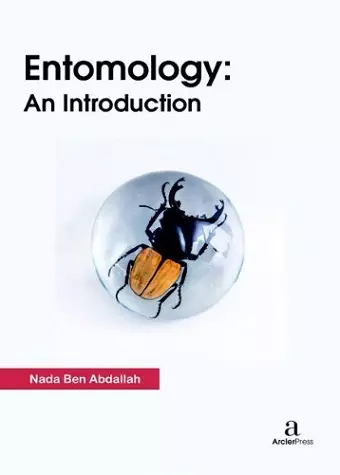Entomology
An Introduction
Format:Hardback
Publisher:Arcler Education Inc
Published:30th Nov '16
Currently unavailable, our supplier has not provided us a restock date

Entomology is the science that deals with everything about insects. The field of entomology often interacts with a wide range of scientific activities, including ecology, biochemistry, anthropology, developmental biology. Insects are involved in virtually every part of our lives; they are pests that eat our food, our houses, our animals, and are vectors that spread sickness and disease. But insects are not all bad! Many insects are beneficial pollinators, decomposers of dead materials, and useful in the biocontrol of unwanted pests. Entomologists study insects to help us manage pests, or learn how to better use them to our advantage. Entomologists are scientists who study insects and how they interact with other species, humans, and the environment. The scientific classification of an insect is an animal that has segmented body parts. There are over one million identified species with most entomologists estimating there to be an additional six to eight more unidentified species. Insect ecology, studies only insects and their relationships with their environment, while insect morphology, studies insect body parts and functions. Insect pathology focuses on how insect sicknesses become disease agents. Insect toxicology analyzes how chemicals and insecticides affect insect physiological functions in order to improve pest management and agricultural production. Medical entomologists study how to prevent insects from harming humans, thus focusing on fatal diseases such as dengue and malaria. The subject does not exist in a bubble where it is useful only to itself; it is part of a wider environmental study of our natural ecology and human geography - insects are affected by the climate and results of studies can tell us much about what is going on in the world around us. We discover new uses for studies in entomology all the time and there are already several established disciplines where insects and insect remains are a powerful type of evidence.
ISBN: 9781680945379
Dimensions: unknown
Weight: unknown
264 pages